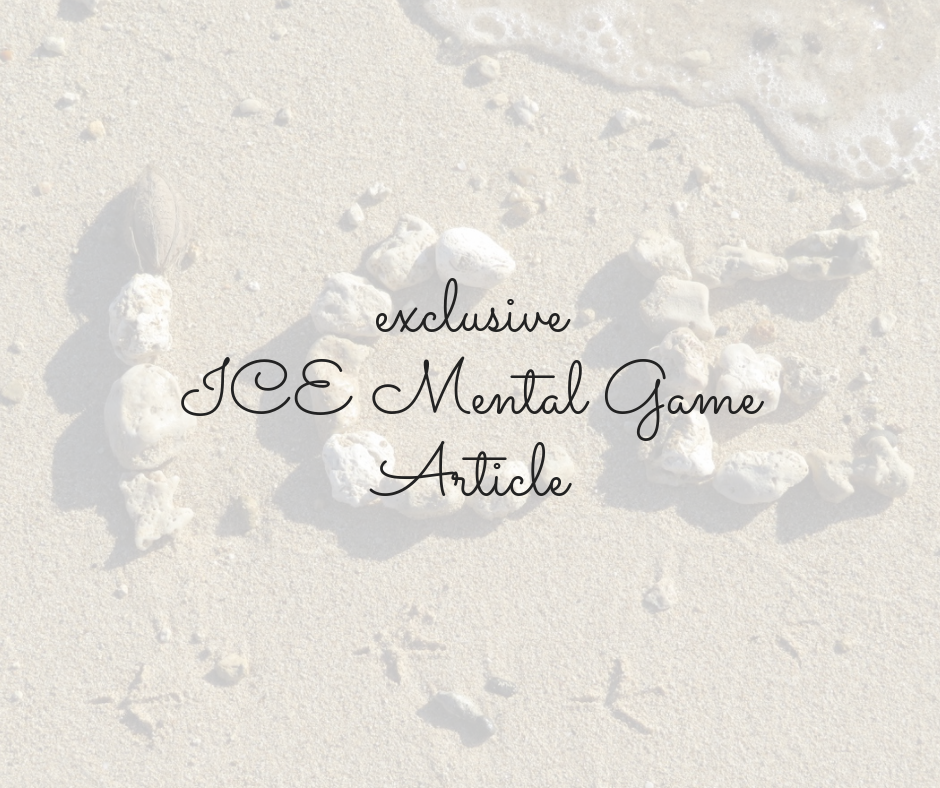“C’mon. You can do it. Stay calm. Focus.”
Skatergirl skates to her opening position. She’s sitting in third after the short program and it’s time for her free skate.
However, even though she is sitting in third, she’s closer to first than fourth. Currently, there is less than a point separating first and third, while third and fourth are separated by more than five.
In other words, the top three are neck and neck. It’s anyone’s game.
“Don’t worry,” Skatergirl tells herself. “You’ve got this. You’ve done this before. If you skate the way you’ve been skating in practice, everything will be great.”
With those words of encouragement, Skatergirl takes her opening position. Then, the music starts to play.
Don’t Talk to Yourself
Stop.
Don’t talk to yourself during competition.
Talking to yourself is bad. It rips you out of your body (hind brain) and forces you into your head (front brain).
Remember. You want to be in your body (hind brain). Your hind brain is where your muscle memory lives and your muscle memory is what allows you to perform up to your full potential.
Cues
Ok. Talking to yourself puts you into your head, so what do you do instead?
The answer is cues.
Instead of talking to yourself to psych yourself up, you want to use cues.
A cue is a single word that reminds you of a feeling. Here are a few examples, “calm”, “vault”, and “head”.
Skater A uses the cue “calm” before they step onto the ice to compete. It reminds them of the feeling of taking deep breaths as they take their opening position.
Skater B uses the cue “vault” as they start the entrance of their triple toeloop. It reminds them of the feeling of vaulting lightly off of their toe pick, instead of slamming it into the ice to get height.
Skater C uses the cue “head” on the takeoff of their triple salchow. It reminds them of the feeling of letting their head trail behind the rotation as they takeoff, rather than allowing it to lead it.
Like the examples above, cues are short and sweet. They are a reminder of a specific feeling, not a set of instructions.
Remember, talking to yourself rips you out of the body, which inevitably leads to poor performance.
Cues that focus on a specific feeling, keep you in your body, and allow you to perform up to your full potential.
Did you know? Mental skills are trained exactly like technical skills (jumps, spins, and lifts). In fact, athletes can learn and practice their mental skills every time they step onto the ice.
Ready to get started? Download your free “Confidence Myth Busters,” eBook and make a change.

